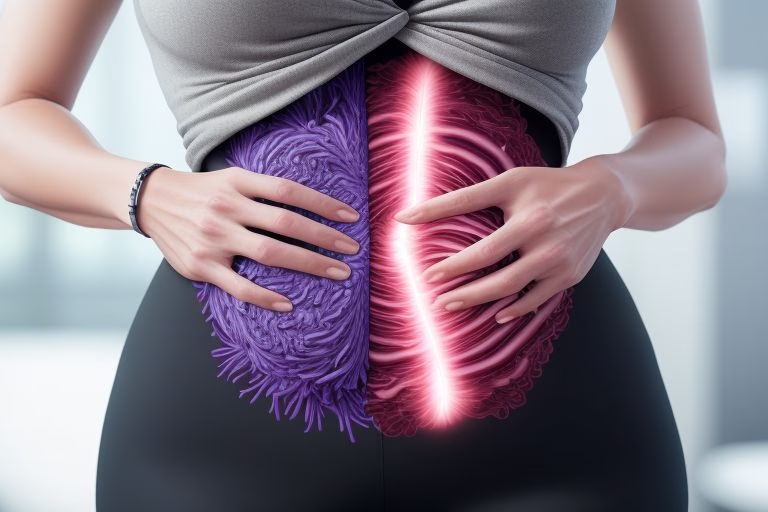

The night I realized something was actually wrong
Not gonna lie… I ignored it way longer than I should have.
At first, it was just “off days.” You know—random stomach noises, weird urgency, that uncomfortable maybe I shouldn’t have eaten that feeling. I laughed it off. Everyone has bad gut days, right?
Then came the mornings.
Every. Single. Morning.
I’d wake up tense, already bracing myself for the bathroom run. Some days it was loose. Some days it was nothing at all. Some days it was both—somehow. That’s when the phrase Irritable Bowel Movement started popping up in my Google searches at 2 a.m., half panicked, half in denial.
Honestly, I thought it was just another internet health buzzword.
I was wrong.
And yeah… I was scared. Not dramatic scared. Quiet scared. The kind where you cancel plans “just in case” and memorize where every restroom is when you leave the house.
What I misunderstood (and messed up early on)
Here’s my first big mistake: I assumed this was a food problem only.
So I went extreme.
No dairy. No gluten. No spice. No joy.
I ate like a monk with trust issues.
Did it help?
A little.
Did it fix anything?
Nope.
What I didn’t understand yet was that Irritable Bowel Movement isn’t just about what you eat. It’s about how your body reacts under stress, timing, habits, sleep, and even fear.
And fear mattered more than I expected.
The more I worried about my gut… the worse it behaved. Which felt cruel, honestly.
The bathroom anxiety spiral (yeah, it’s real)
Nobody talks about this part enough.
Once your body starts acting unpredictable, your brain goes into survival mode. You stop trusting yourself. You plan exits. You skip road trips. You avoid long meetings.
I remember standing in a grocery store aisle, stomach tight, thinking, what if it hits now?
That anxiety alone triggered symptoms.
It became a loop:
-
Fear → urgency
-
Urgency → embarrassment
-
Embarrassment → more fear
This was the moment I realized I couldn’t just “power through” this. I had to slow down and actually listen.
What finally started helping (after a lot of trial and error)
This is the part people want shortcuts for.
Sorry. I don’t have one.
But I do have what worked for me, step by messy step.
1. I stopped reacting to every symptom
This was huge.
Instead of panicking, I started observing. Almost like a scientist… just way more tired.
I tracked:
-
Time of day
-
Stress level
-
Sleep quality
-
What I ate the night before, not just that day
Patterns showed up slowly. Annoyingly slowly.
But they did show up.
2. Morning routines mattered more than meals
This surprised me.
My gut cared less about lunch and more about how rushed my mornings were.
On calmer mornings? Fewer issues.
On chaotic mornings? All hell broke loose.
So I changed:
-
Earlier wake-up
-
No phone for first 30 minutes
-
Warm water before coffee (this helped more than expected)
Small shift. Big difference.
3. I stopped “testing” my gut every day
I used to challenge it constantly.
Can I handle this food now?
What about today?
Bad idea.
Your gut hates being tested. From what I’ve seen, at least.
Consistency beat experimentation. Boring meals helped more than “gut-friendly” trendy ones.
5. The foods that surprised me (in both directions)
Let’s talk specifics—without pretending this applies to everyone.
Foods I assumed were safe… but weren’t (for me):
-
Oatmeal (still hurts to admit)
-
Raw salads
-
Protein bars with “natural” sweeteners
Foods I feared… but actually helped:
-
White rice
-
Eggs
-
Plain potatoes
-
Soup. Lots of soup.
I learned that Irritable Bowel Movement doesn’t care about food labels or health halos. It cares about digestive load.
Simple won. Fancy lost.
6. Stress wasn’t a trigger. It was the engine.
I used to roll my eyes when people said “it’s stress-related.”
Sounded dismissive. Like they were saying it was all in my head.
But here’s the truth I didn’t want to admit:
My gut flared hardest when:
-
I was rushing
-
I felt trapped (meetings, travel)
-
I ignored sleep
-
I tried to “push through”
This wasn’t weakness. It was feedback.
Once I treated stress management as gut treatment, things shifted.
Breathing helped. Walking helped. Saying no helped.
Therapy helped too—yeah, I said it.
7. Would I do anything differently if I could rewind?
Absolutely.
Here’s my don’t make my mistake list:
-
Don’t self-diagnose forever
-
Don’t chase miracle fixes
-
Don’t ignore mental health
-
Don’t punish your body for reacting
And most importantly…
Don’t wait until your world shrinks before taking this seriously.
Practical takeaways (the stuff I wish someone told me)
If you’re dealing with something like Irritable Bowel Movement, here’s what I’d pass along—friend to friend:
-
Track patterns, not perfection
-
Eat boring for a while (it’s temporary)
-
Calm mornings matter
-
Stress management isn’t optional
-
Progress feels slow until it isn’t
This isn’t magic. It’s maintenance.
FAQs — what I’ve learned the hard way
How long did it take before things felt normal again?
For me? A few months. Not weeks. Months. And progress wasn’t linear.
Does it ever fully go away?
I won’t lie—it comes and goes. But it no longer controls my plans.
Should I avoid eating out completely?
No. But I choose places wisely and don’t go hungry into meals.
Is this the same as IBS?
They overlap, but symptoms and triggers can vary a lot.
What helped the most overall?
Routine. Calm. And stopping the constant fear loop.
Would I change my lifestyle again if symptoms return?
Yeah. Without hesitation.
So no—Irritable Bowel Movement isn’t some quirky gut phase you just “get over.”
But it’s also not the end of normal life.
For me, it became a weird teacher. Annoying. Humbling. Occasionally brutal.
But once I stopped fighting my body and started working with it?
Things finally eased.
Not perfect. Not cured.
Just… manageable.
And honestly? That was enough.







